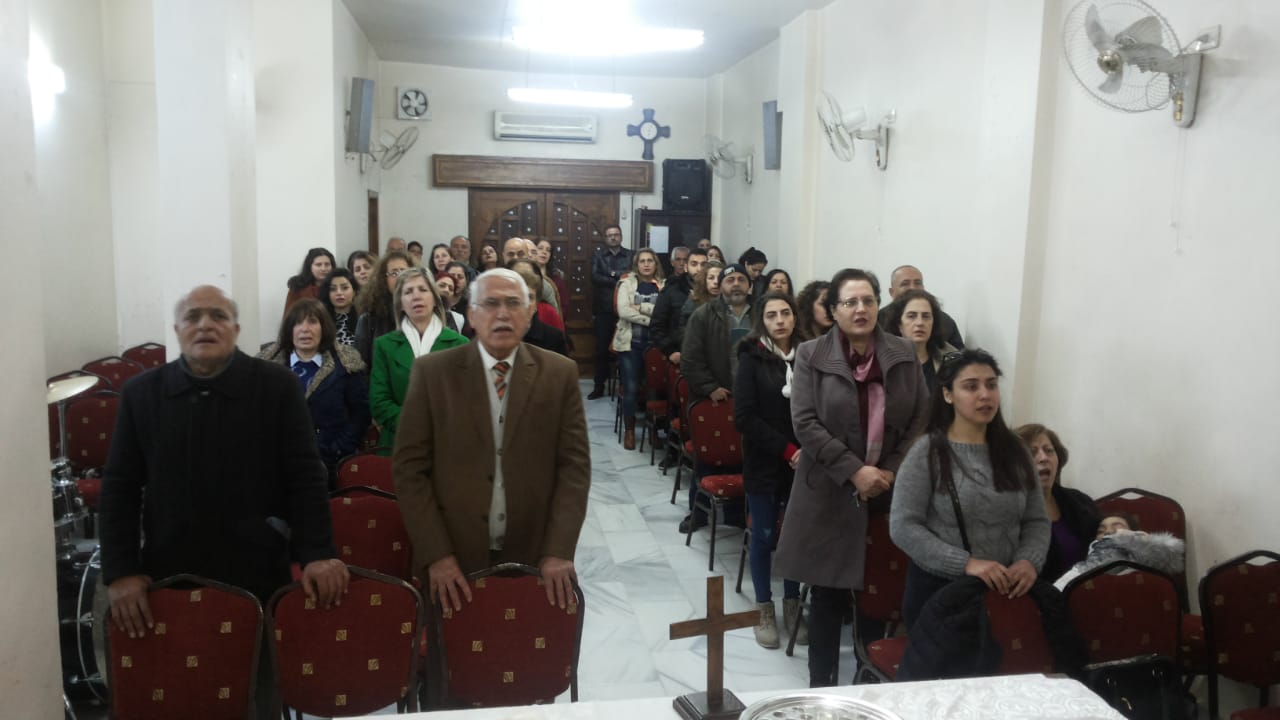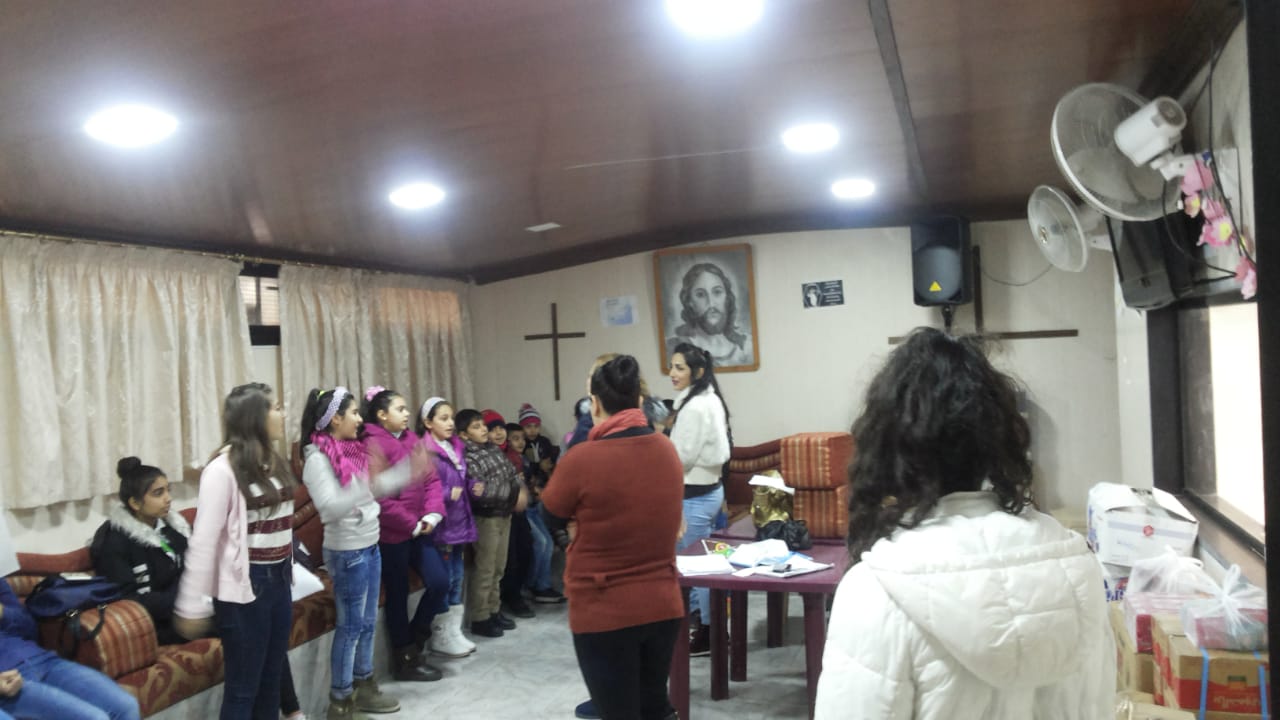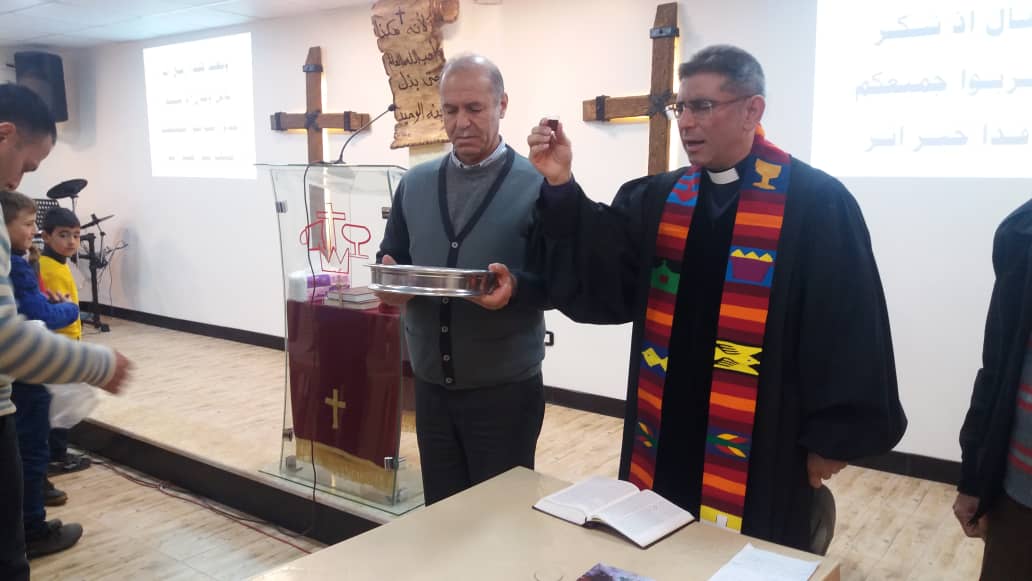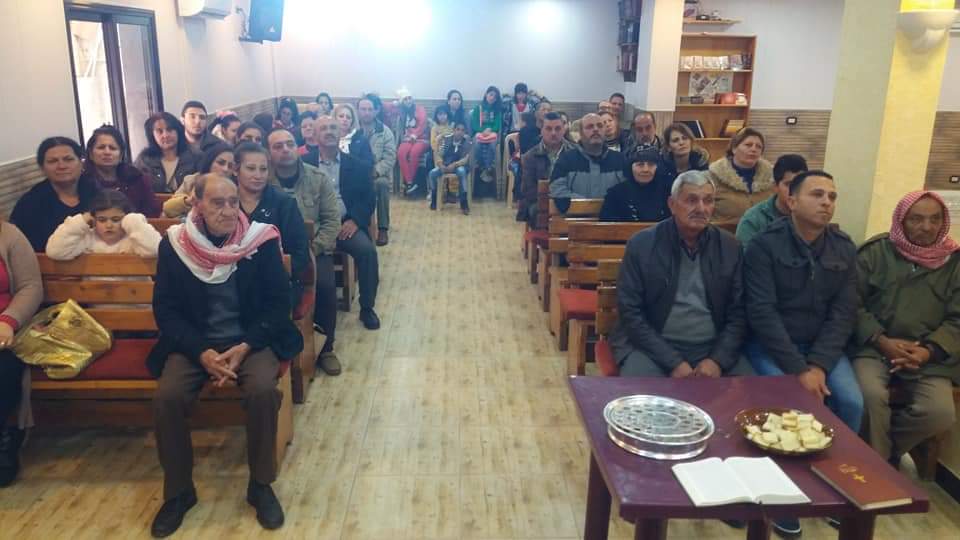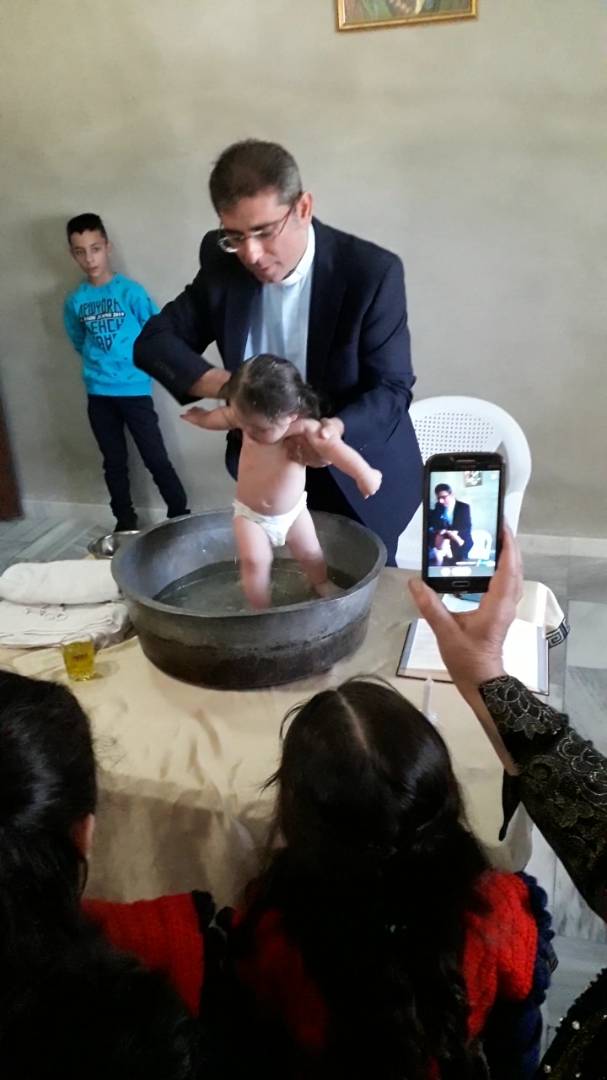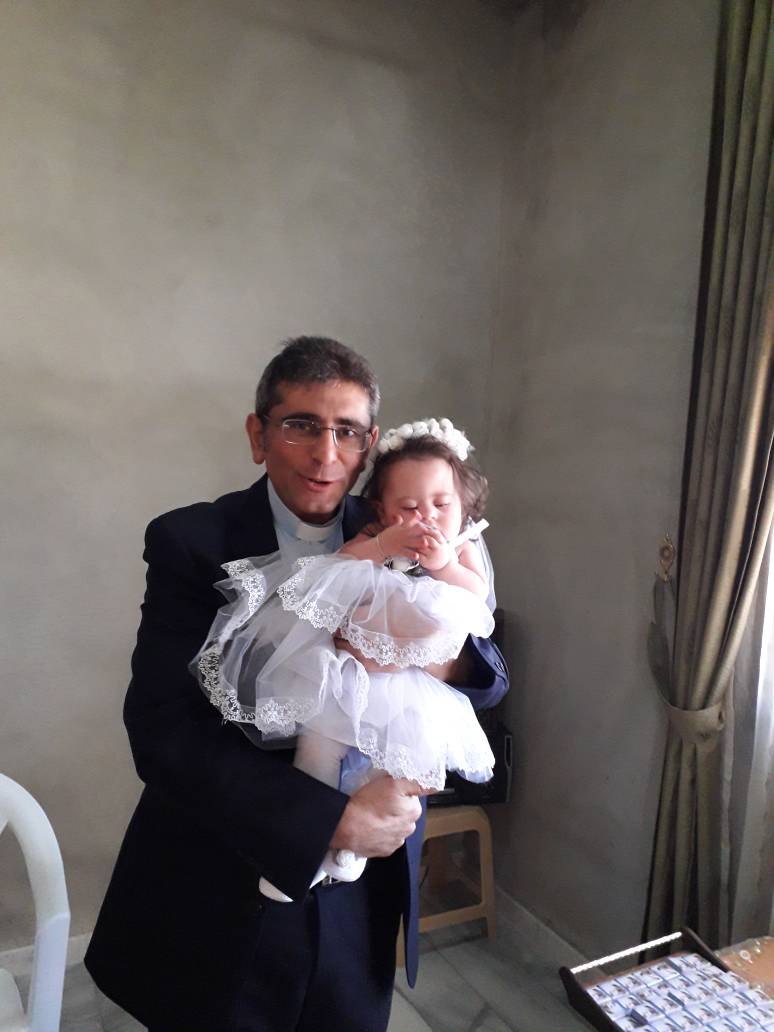A Letter from Noah Park and Esther Shin, serving in Egypt
March 2019
Write to Noah Park
Write to Esther Shin
Individuals: Give online to E200536 for Noah Park and Esther Shin’s sending and support
Congregations: Give to D507591 for Noah and Esther’s sending and support
Churches are asked to send donations through your congregation’s normal receiving site (this is usually your presbytery).
When I attended Salim’s ordination service last June, I felt both joy and sorrow. Salim, a Syrian student, had just graduated from the M.Div. program at the Evangelical Theological Seminary in Cairo (ETSC) and would soon be returning to Syria to begin his ministry. Against our expectations, his mother in Syria was granted a visa and was able to travel to Cairo to attend both ceremonies.
The climax of the ordination service came right after the laying on of hands. Salim’s mother stood up and celebrated the moment with an ululation, a long, high-pitched vocal sound with some vibration commonly heard in the Middle East and Africa. Others usually join in as a communal demonstration of excitement at happy occasions. However, Salim’s mother was alone that day. This made her ululation sound very sad.
Salim had a lot of friends there, so I still do not completely understand why they did not join her at the right moment. Yet I could sense and share a heavy feeling because Salim had to return to his war-torn country after the ordination service. The next day, we invited Salim and his mother to a nice restaurant and had a good time of fellowship despite our poor Arabic. Then, he and his mother left for Syria for his first ministry as an ordained pastor.
In early January 2019, I received a text message that Salim had arrived in Cairo for a conference. Soon, he walked into my office saying, “Izayak, doctor? (How are you, doctor?)” with his big signature smile. We gladly greeted each other in the Egyptian way of kissing on both cheeks. I asked about his life in Syria.
After seminary, Salim waited for a few months until the National Evangelical Synod of Syria and Lebanon appointed him to his ministry. The history of the National Evangelical Synod of Syria and Lebanon goes back to 1819 when Presbyterian mission personnel first arrived in the region. Currently, the denomination has 38 congregations in Syria and Lebanon with 24 ordained pastors.
Before seminary, Salim was an elder at his home church at Baludan, a resort town in the hills outside of Damascus. When the civil war broke out, the church’s Egyptian pastor left for his country. So Salim, an attorney and judge at the religious court by profession, served as a lay pastor. This experience in a church without a pastor led him to decide to study theology and pursue ordination. Following his brother who had already finished his M.Div. education at ETSC, Salim came to Cairo and spent four years.He was welcomed at the seminary, enjoyed studying theology among Egyptian students, and was actively involved in many activities at ETSC. But he faced a difficult time during his first year of study. His father passed away, but Salim could not visit his family in Syria. Since his visa had been specially granted, he and the seminary feared that if he left, he may not be able to return to Cairo to finish his studies.
Now, Salim serves two congregations in Syria, one in Jaramana near Damascus, and the other in the Suwaida area close to the southern border with Israel and Jordan. He lives in Suwaida but commutes to Jaramana on Sundays by taxi or bus in order to lead worship services. Travel on Sundays in the evening is often scary, since he can be robbed on the way at any time.
The situation of those living in Syria is far worse than we can imagine. After eight years, the multi-sided armed conflict has not yet ended. To this point, it has left a death toll of a half million and far more victims with permanent disabilities. According to the Syrian Observatory of Human Rights, more than 10 million people out of Syria’s population of 20 million have been displaced internally and abroad. It is not hard to guess that many Christians are among those homeless groups. In the past, 10 percent of Syrians were Christians, but the number these days is believed to be much smaller. Due to war and violence, the Christian population in Syria and Iraq has greatly decreased.
In the Suwaida area, Salim is engaged in serving displaced Christian families. Most of them have lost their land and were forced to move to neighboring villages where Sunni and Druze Muslim populations have traditionally lived. As a religious minority, Christian suffering is doubled when they become day laborers. Maybe we can understand their situation by considering the differences between landowners, tenants, and day laborers in Jesus’ parables.
Salim told me it is very difficult to tell his members that they still have hope when all aspects of life say the opposite. Everything is extremely expensive. Children do not attend schools. Many live with disabilities and suffer from diseases, mental as well as physical, and without appropriate medical treatment. Salim is one of a handful of Presbyterian ministers in Syria ministering in this dire situation. His presence as a pastor in residence is itself very meaningful for the congregation and Christians in the region.
During our conversation, Salim showed me a beautiful photograph of an infant girl being baptized. The girl had Down syndrome, and the family could not come to the church due to distance. So Salim visited their home in a remote village. Though I was not there in the worship service, as I looked at the picture and listened to Salim’s story, I could feel the spirit of joy and peace among the family and friends in the midst of chaos and despair. If Salim had not been there, the girl could not have been baptized. I am so proud that my student Salim, now an ordained pastor in Syria, is witnessing to the power of resurrection.
There is some recent good news — it looks like the civil war will end sooner or later, hopefully. Indeed the whole world is looking forward to ululating together at the end of the tragedy. But the road to restoration and reconciliation will be long and hard. I ask you to lift up Syrian Christians and pastors in your prayers. And please be reminded that ETSC supports not only Egypt but also the Middle East and North Africa in our theological education. Your support in our ministry is fruitful in Salim’s ministry of shalom. Thank you for your participation and prayer.
![]() You may freely reuse and distribute this article in its entirety for non-commercial purposes in any medium. Please include author attribution, photography credits, and a link to the original article. This work is licensed under a Creative Commons Attribution-NonCommercial-NoDeratives 4.0 International License.
You may freely reuse and distribute this article in its entirety for non-commercial purposes in any medium. Please include author attribution, photography credits, and a link to the original article. This work is licensed under a Creative Commons Attribution-NonCommercial-NoDeratives 4.0 International License.
Tags: Christianity, ETSC, minister, minority, National Evangelical Synod of Syria and Lebanon, ordination, peace, syria, violence, war
Tags: Noah Park and Esther Shin
